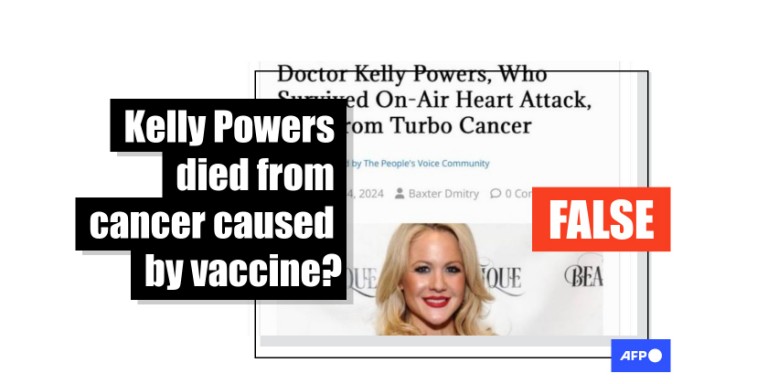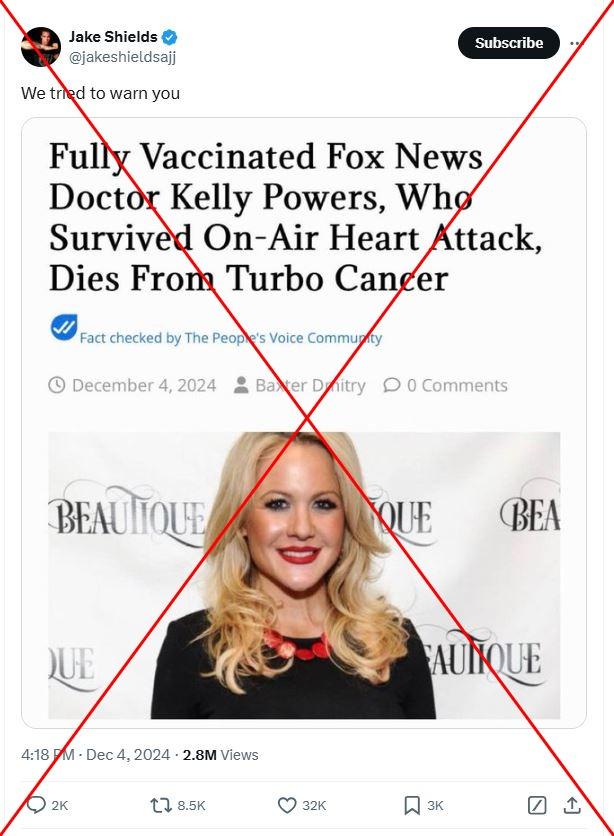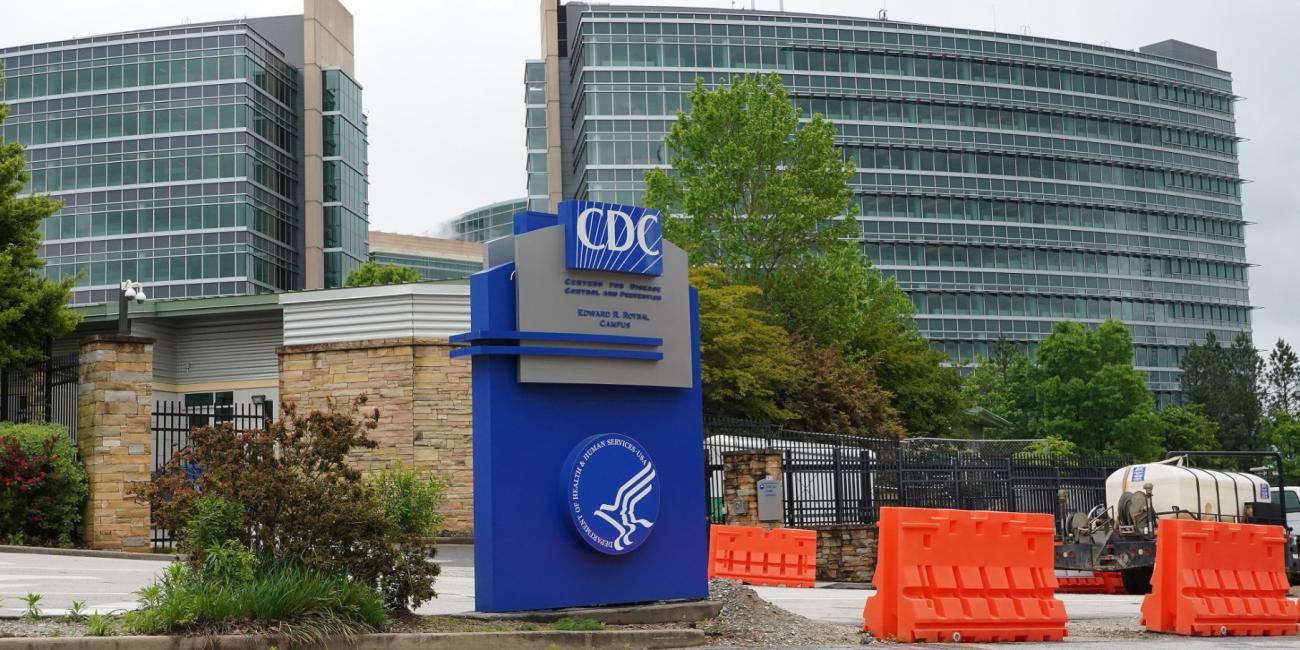
Fox News commentator did not die of 'turbo cancer'
- This article is more than one year old.
- Published on December 12, 2024 at 18:19
- 2 min read
- By Alexia PARTOUCHE, AFP USA
"We tried to warn you," says a December 4, 2024 X post.
The post includes a screenshot of an article from The People's Voice -- a website AFP has repeatedly fact-checked --with the headline: "Fully Vaccinated Fox News Doctor Kelly Powers, Who Survived On-Air Heart Attack, Dies from Turbo Cancer."

The claim was shared elsewhere on X shortly after Powers's death to glioblastoma was announced.
Glioblastomas are fast-growing tumors, with a five-year relative survival rate of 5.6 percent for adults over 40 (archived here).
Powers, a surgeon and medical commentator for several Fox News shows, was first diagnosed with the cancer in July 2020, according to a post on Instagram (archived here) -- several months before Covid-19 shots were available in the United States.
Despite undergoing three brain surgeries and multiple rounds of treatment, she shared in an Instagram post on February 23, 2024 that the cancer had returned. She died December 1 at age 45.
The posts following Powers's death echo a trend of anti-vaccination advocates falsely linking Covid-19 shots to "turbo cancers" -- a term that has not been used by oncologists and has been circulated by critics of the coronavirus vaccine.
But the claim is false. Current evidence shows no link between Covid-19 vaccines and aggressive cancers. Public health agencies around the world say the shots are safe and effective at preventing severe illness and death and have saved millions of lives (archived here, here, here and here).
No evidence
The United States-based Memorial Sloan Kettering Cancer Center called the claim that the Covid-19 vaccine causes cancer a "myth."
Covid-19 vaccines "cannot cause cancer," it says on its website. "There is no truth to the myth that somehow the Covid-19 vaccine could inactivate the genes that suppress tumors."
This position is echoed by the National Cancer Institute and the American Cancer Society (archived here and here).
David Gorski, a surgical oncologist at the Wayne State University School of Medicine, wrote on his Science-Based Medicine blog that available evidence does not show the mRNA vaccines cause more intense forms of cancer.
"Oncologists don't recognize it as a phenomenon, nor do cancer biologists, and if you search for it on PubMed, you won't find a reference to it," Gorski wrote in 2022.
Experts have previously told AFP that delays in screenings and preventive care during the pandemic are much more likely to have influenced cancer diagnoses and deaths than vaccines.
AFP has previously fact-checked additional claims about cancer.
Copyright © AFP 2017-2026. Any commercial use of this content requires a subscription. Click here to find out more.
Is there content that you would like AFP to fact-check? Get in touch.
Contact us




